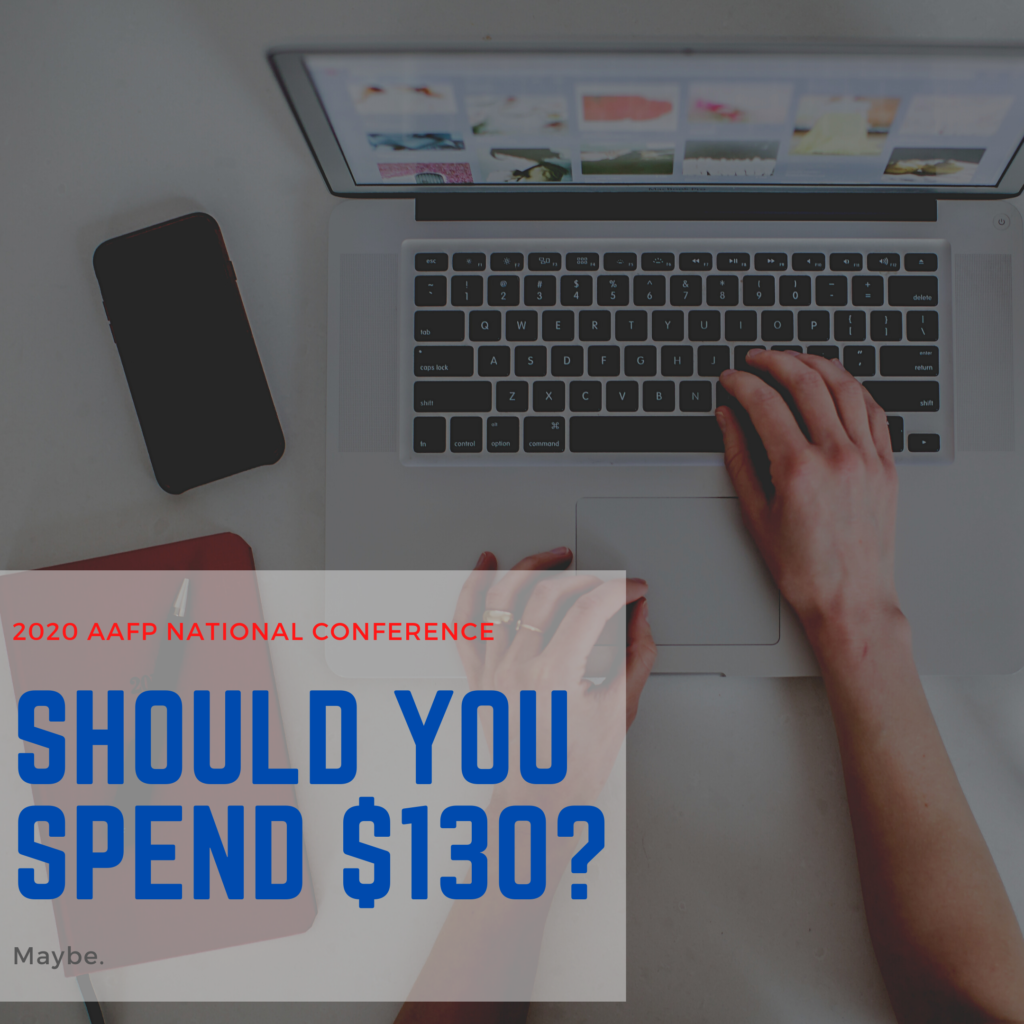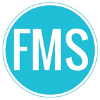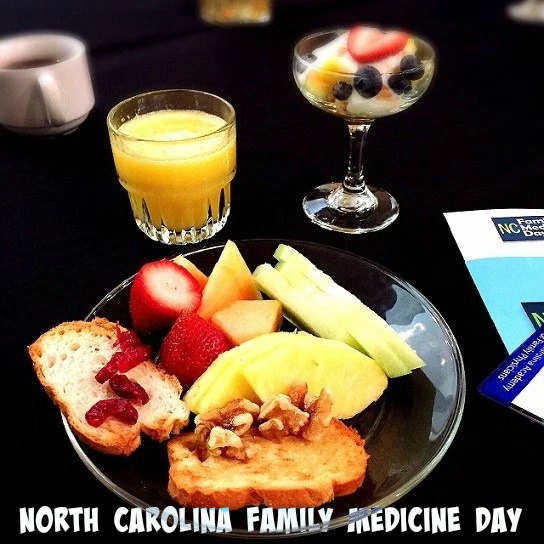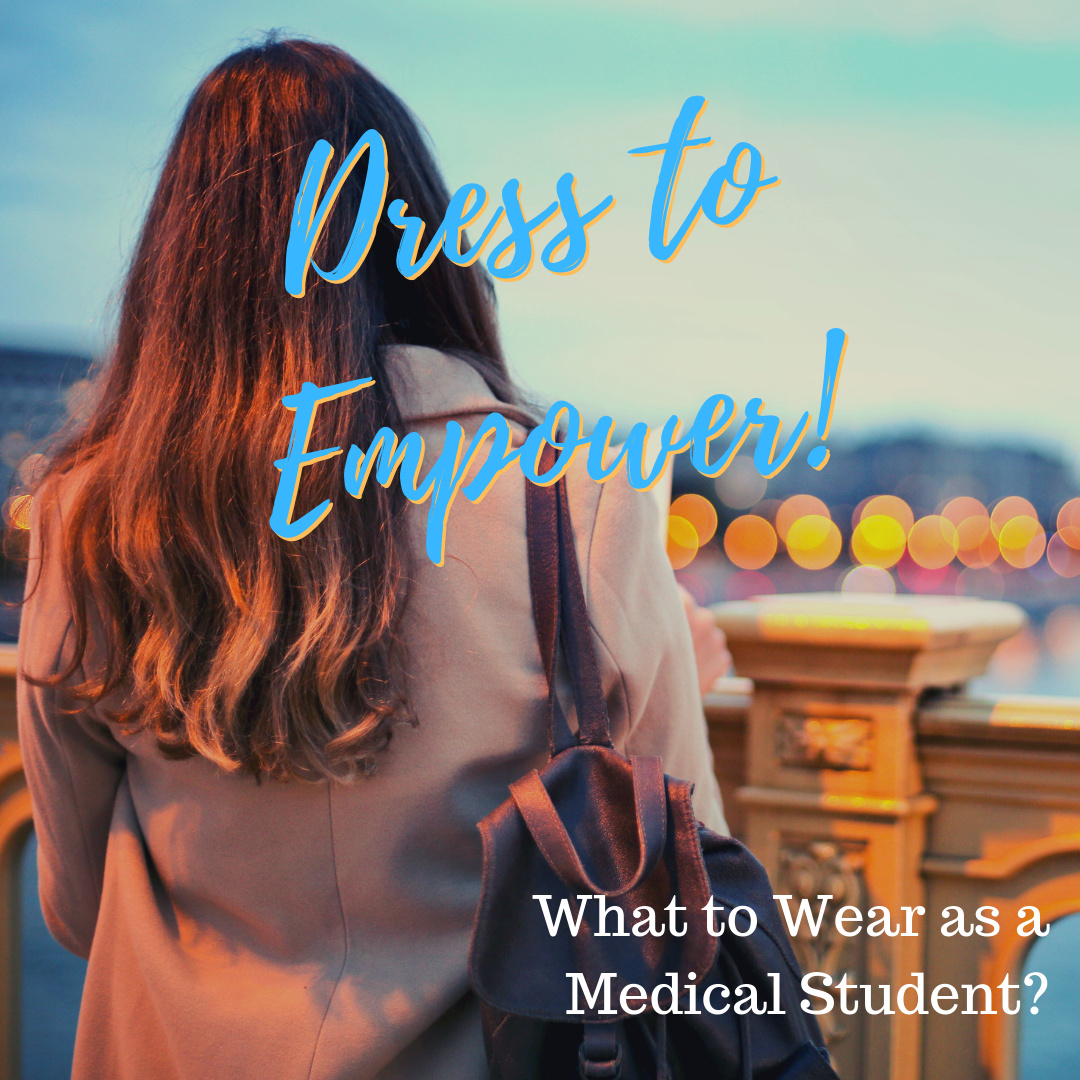The AAFP National Conference

Should you spend $130 for the virtual conference?
The AAFP National Conference is an experience, an event for students interested in Family Medicine, who leave excited and passionate to pursue one of the most diverse specialties in medicine. It’s also a great way to figure out what you’re looking for in a residency program, where you want to apply and a chance to meet residents and program faculty at places you might not pass the “pre-screen” for. And this year it will be virtual for the first time (thank you, COVID-19).
In June, Farrah and Pixie had a meeting (via Zoom, of course) with some of the folks over at AAFP involved in planning this year’s entirely new breed of event. We hope this info helps you decide if the $130 registration fee is worth your investment.
The Basics
In a week, on Thursday July 30th, the virtual event starts. YOU NEED TO HAVE AN AAFP STUDENT MEMBERSHIP so go SIGN UP RIGHT NOW if you don’t have one (it’s free). The conference runs from the 30th through Saturday the 1st. The schedule can be viewed here and includes some important events you’ll want to get into, like Dr. Diaz’s “Can You Hear Me Now? Interviewing in the Virtual Age” keynote. Both main stage events and workshops are likely to be a combination of pre-recorded videos and live presentations.
Workshops
You can view the big list here. For medical students I cannot recommend enough that you are logged in and “in the room” for both “Applying to Residency” and “Do’s and Don’ts of Residency Interviewing” workshops.
For IMGs learn from fellow IMG (and now a Program Director) during “From One IMG to Another.” For URMs there’s a networking session that may be helpful in fostering connection to an URM supportive program. For everyone the workshops on “Incivility in Health Care” and “Did My Attending Just Say That” can help you navigate awkward or hostile moments.
Most of the skills workshops had to be cancelled, as hands-on doesn’t work over zoom. However, there is a planned EKG reading workshop which all students can benefit from, and an intro to bedside ultrasound which may be helpful.
The Expo Hall
In prior years, this was a huge space filled with residency programs and other vendors eager to meet students. Every year literally hundreds of programs setup booths to meet students, hand out swag and find the fourth years who might be a good fit for their residency.
The plan is to create virtual expo hall with “floors”, likely sorted by geography (state sorting) and categories (such as “rural experience,” “community based residencies/hospitals,” or “osteopathic recognition”). It may also have “floors” based on program size.
In early June the plan was to have each program create a pre-recorded “intro” video for their residency, setup 1-2 weeks before the event, and with AAFP providing tips/guidelines on length and what to include. Each of you will decide if you prefer programs that stick to the format, or offer variety.
So how do I “meet” programs?
Students will be given access prior to the first day (hurry up and register so you can) to begin exploring what programs are available, and will all be allowed to request “1 to 1” live meetings at the same time. Programs will be doing these via the same folks who they’d have at conference (ie: they all are limited to the same 6 “badges” for staff participants) so you may “meet” with a resident or faculty member, depending on what time you pick and who’s available. Importantly, they are NOT allowed to record these 1-on-1 talks.
What’s good about this?
- Even if your dream program doesn’t take part in the virtual conference (budgets have been slashed due to COVID-19) being able to mention your attendance may be considered as dedication to FM. (One of my concerns is that students using FM as a back-up will take precious interview spots this year, and thus adding “Attended AAFP Conference” on your CV may be a plus – Pixie)
- IMGs are getting sessions specific to them this year, taught by former IMGs who can provide practical, helpful advice given COVID-19s destruction of clinical rotations.
So, what are the negatives?
- There is no way to re-create the spontaneous encounters one has walking around a convention center (meeting new people), exploring the expo hall (talking to residencies you otherwise wouldn’t have) and attending parties (sorry, they were fun).
- The nature of the virtual online event makes those with a bad internet connection at risk for appearing less “good” than those who have a good one.
- It’s unclear how 1:1 will be setup by programs, or how many programs will choose to participate in a digital conference. You may not be exposed to programs that would have taken part in the past.
- One of the fun things about conference was that many programs hosted private dinners the first night of the event, inviting students who they were highly interested in to talk more. One of these dinners is what led to me applying to what became my number one residency, and where I Matched. This would be difficult to re-create virtually.
What virtual specific events may happen?
The AAFP’s student and resident council has been working on Zoom-type alternatives to the nightly events. Each day has a starting yoga session, Friday there’s a trivia night and virtual happy hour (replacing the big party held at past live conferences).
What about the Main Stage?
The Main Stage sessions were away from the expo hall, the big start and end of day events that revitalized sleepy students. This year there will be a panel discussion with community FM docs, advice for the Virtual Match and discussion of the broad scope of FM.
What about security?
If you’ve experienced anonymous Zoom harassment you know why this was a question we asked. And this is why AAFP is requiring you to have a student AAFP account to access the event. Although they’re using an experienced tech third-party, the easiest way to prevent harassment is a combination of the cost ($130 is a bit much to harass a bunch of doctors and medical students) and the existence of an AAFP account.
TL;DR: It’s $130, should I go?
If you’re a first or second year student? Probably not. However, I have no strong opinion on this. It’s still a lot of money, and the programs may not care that you’re there. Is it worth $130 for you to get the virtual experience? Who knows.
Third years? Maybe. There’s a chance this pandemic will still be raging on this time next year, and it’s unclear what benefit you gain going two years in row. However, if it is a live event next year and you can’t afford to travel to Kansas City this year’s virtual attendance may be of benefit.
Fourth years. YES. This is a chance to hear from program director’s themselves, to get to talk one on one with a resident or faculty member at programs that fit your interests. Many programs will ignore their own cut-offs if a person they met at this conference is a good fit for their program, is passionate about Family Medicine and seems driven to “overcome” an arbitrary test score. I literally Matched at my program because of this conference.
As a DO, this conference made it easy for me to figure out what programs were actually DO-friendly (“Hi, I’m a DO and didn’t take USMLE, would you consider me?” and “I didn’t see any DO faculty or residents on your website, have you ever had DO residents in your program?”)



